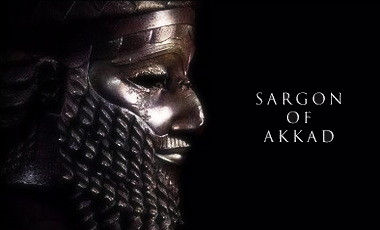Philosophical Naturalism and the Modern Worldview
The second modern factor that has contributed to the widespread understanding that religious belief is private, practical, and relative, and need not be related to truth and reason is the widespread acceptance of philosophical naturalism as an expression of scientism. Philosophical naturalism is the idea that reality is exhausted by the spatio-temporal world of physical entities that we can investigate in the natural sciences. The natural causal Fabric of physical reality within the boundaries of space and time is all there is, was, or ever will be. The supernatural doesn’t exist except, perhaps, as a belief in people’s minds. On this view, religious beliefs are simply ways of looking at things in our search for meaning and purpose; they are not ideas that correspond to a mind-independent reality.
Philosophical naturalism is an expression of an epistemology (i.e., a theory of knowledge and justified or warranted belief) known as scientism. Scientism is the view that the natural sciencesare the very paradigm of truth and rationality. If something does not square with currently well-established beliefs, if it is not within the domain of entities appropriate for scientific investigation, or if it is not amenable to scientific methodology then it is not true or rational. Everything outside of science is a matter of mere belief and subjective opinion, of which rational assessment is impossible. Applied to the question of the historical origins of Christianity, scientism implies that since we live in the modern scientific world where the sun is the center of the solar system, the wireless is available for our use, and the atoms power has been harnessed, we can no longer believe in a biblical worldview with its miracles, demons, and supernatural realities.
Obviously, it is impossible in the brief space of an introduction to critique adequately scientism and naturalism. Still, a few cursory remarks need to be expressed.
(1) Scientism is simply false for three reasons. (a) It is self-refining, i.e., it falsifies itself. Why? Scientism is itself a statement of philosophy about knowledge and science; it is not a statement ofscience itself. Moreover, it is a statement of philosophy that amounts to the claim that no statements outside scientific ones, including scientism itself (because it is a statement of philosophy), can be true or supported by rational considerations. (b) Science itself rests on a number of assumptions: the existence of a theory-independent external world, the orderly nature of the external world, the existence of truth and the reliability of our senses and rational faculties to gather truth about the world in a trustworthy manner, the laws of logic and the truths of mathematics, the adequacy of language (including mathematical language) to describe the external world, the uniformity of nature, and soon. Now, each one of these assumptions is philosophical in nature. The task of stating, criticizing, and defending the assumptions of science rests in the field of philosophy. Scientism fails to leave room for these philosophical tasks and, thus, shows itself to be a foe and not a friend of science. (c) There are many things we know in religion, ethics, logic, mathematics, history, art, literature, and so on that are simply not matters of science. For example, we all know that two is an even number, that Napoleon lived, that torturing babies for fun is wrong, that if A is larger than B and B is larger than C, then A is larger than C, and so on. None of these items of knowledge are scientific in nature, and scientism is falsified by their reality.
(2) Philosophical naturalism is false as well. For one thing, philosophical naturalism rules out the existence of a number of things that do, in fact, exist. And while we cannot defend their existence here, suffice it to say that, currently, a number of intellectuals have offered convincing arguments for the reality of universals and other abstract objects such as numbers, the laws of logic, values, the soul and its various mental states (including the first person point of view), other minds, libertarian or full-blown freedom of the will, and so on. None of these items can be classified as mere physical objects totally within the causal fabric of the natural spatio-temporal universe. In fact, it is not an exaggeration to say that there is not a single issue of importance to human beings that is solely a matter of scientific investigation or that can be satisfactorily treated by philosophical naturalists.
(3) Philosophical naturalism fails to explain adequately the fact that there are a number of arguments and pieces of evidence that make belief in God more reasonable than disbelief. Some of this evidence actually comes from science: the fact that the universe had a beginning based on the Big Bang theory and the second law of thermodynamics, the existence of biological information in DNA that is closely analogous to intelligent language and that cannot arise from the accidental collisions of physical entities according to laws of nature, the reality of the mental and of free will according to a number of emerging psychological theories of the self, the delicate fine-tuning of the universe, and so on.”
Like it or not, a significant and growing number of scientists, historians of science, and philosophers of science see more scientific evidence now for a personal creator and designer than was available fifty years ago. In light of this evidence, it is false and naive to claim that modern science has made belief in the supernatural unreasonable. Such a view can be called ostrich naturalism—a position that requires its advocate to keep his or her head in the sand and not to acknowledge real advances in science. The plain truth is that science itself makes no statements about all of reality anyway, nor does science itself offer any support for philosophical naturalism. What does support philosophical naturalism are the ideological claims of naturalists themselves regarding what science ought to say if we assume philosophical naturalism to begin with.
In sum, it matters much that our religious beliefs are both true and reasonable. Moreover, there simply are no sufficient reasons for not believing in the supernatural, and there are in fact a number of good reasons (including but going beyond scientific ones) for believing in the supernatural. As we have said, space considerations do not permit us to defend this last claim here. But we will list some sources in the bibliography that adequately justify this claim. If you are an honest inquirer about the truth of religion, moral and intellectual integrity unite in placing a duty on you to read these works as a sincere seeker of the truth. It is well past time to rest content with the politically correct, unjustified assertions of scientism and philosophical naturalism. University libraries are filled with books that show the weaknesses of these views, and the fellows of the Jesus Seminar show virtually no indication that they have so much as interacted with the arguments they contain, much less have they refuted their claims.
Regarding Jesus of Nazareth, all of this means the following: Prior to investigating the historical evidence about his life, deeds, sayings, and significance, there is no good reason to bring to the evidence a prior commitment to naturalism. As later chapters will show, such a commitment is Procrustean in that it often forces the evidence of history to fit an unjustified anti-supernatural bias. But when the evidence is evaluated on its own terms, and when such an evaluation is combined with the rigorous case for supernatural theism already available in the literature, then the claims of historic, orthodox Christianity can be reasonably judged to be true.
Michael J. Wilkins, ed., Jesus Under Fire: Modern Scholarship Reinvents the Historical Jesus (Grand Rapids, MI: Zondervan, 1996), 8-10.











